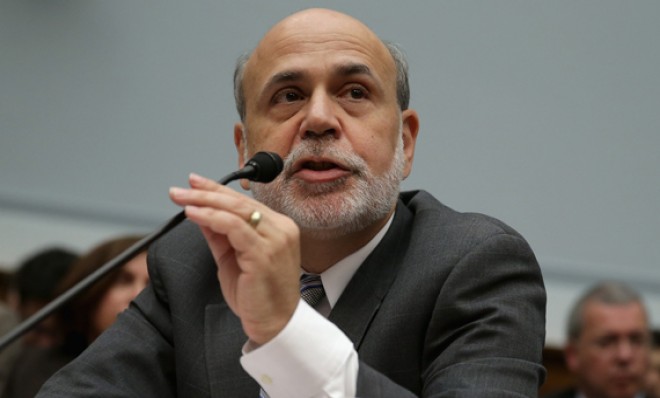The Fed's key role in the potential Verizon/Vodafone mega-deal
The Bearded One may have helped lube one of the biggest deals in corporate history

A free daily email with the biggest news stories of the day – and the best features from TheWeek.com
You are now subscribed
Your newsletter sign-up was successful
Thursday morning, U.K. telecom giant Vodafone announced that it is in talks with Verizon Communications about possibly selling its 45 percent stake in their joint venture Verizon Wireless — a deal that could bring the British company as much as $130 billion.
It would be one of the biggest deals in corporate history — topping off more than a decade of mergers and acquisitions in the telecom industry in which players were constantly vying for a bigger slice of the global pie.
With its sights on full control of America's most profitable mobile-phone company, Verizon Communications has for years been prodding Vodafone, which has reaped billions in dividends from the partnership, to sell its stake in Verizon Wireless. So far, however, it has failed to offer a price that Vodafone found attractive. In April, Verizon had hired advisers for a possible $100 billion bid — an offer analysts said was about $30 billion short.
The Week
Escape your echo chamber. Get the facts behind the news, plus analysis from multiple perspectives.

Sign up for The Week's Free Newsletters
From our morning news briefing to a weekly Good News Newsletter, get the best of The Week delivered directly to your inbox.
From our morning news briefing to a weekly Good News Newsletter, get the best of The Week delivered directly to your inbox.
But Verizon seems to be more flexible, suddenly. And for that, Vodafone may have Ben Bernanke to thank. Since May, when the Federal Reserve chairman started talking about cutting back on his quantitative easing policy — where it buys $85 billion a month in mortgage-backed securities and Treasuries — interest rates have been inching up. And because Verizon would have to borrow a big chunk of change to finance the enormous deal, every time interest rates grow, so does the cost of the deal.
"Interest rates are presumably the real catalyst here," Craig Moffett, senior research analyst at Moffett Research, told The Wall Street Journal.
If the deal were to require roughly $60 billion of debt, each percentage point increase could potentially add some $600 million a year in interest costs to the deal's price tag, Mr. Moffett said. "With interest rates rising, there has to be some sense of urgency that is now or never." [The Wall Street Journal]
That urgency may be fueled even more by the fact that some expect the Fed to announce the first round of "tapering," as it calls the cutbacks to its monetary stimulus, as soon as its next meeting on September 17-18.
As though that's not enough pressure for Verizon, the rising interest rates are coinciding with increased competition in the U.S. wireless industry. "Verizon Wireless and AT&T Inc. have long accounted for the bulk of the industry's lucrative subscribers on contracts, net customer additions and profits," says The Wall Street Journal. "But in recent months, smaller rivals Sprint Corp. and T-Mobile USA Inc. have showed signs of becoming more formidable competitors."
A free daily email with the biggest news stories of the day – and the best features from TheWeek.com
So what does Vodafone get out of pushing the deal to a close? Here's Bloomberg Businessweek:
The cash from the U.S. stake sale would give Vodafone the wherewithal to make acquisitions and expand into faster-growing regions and businesses. In June, Vodafone agreed to buy Germany’s largest cable company, Kabel Deutschland Holding AG, for $10 billion, part of a shift in strategy to sell combined wireless, fixed-line internet and television services. [Bloomberg Businessweek]
Carmel Lobello is the business editor at TheWeek.com. Previously, she was an editor at DeathandTaxesMag.com.